

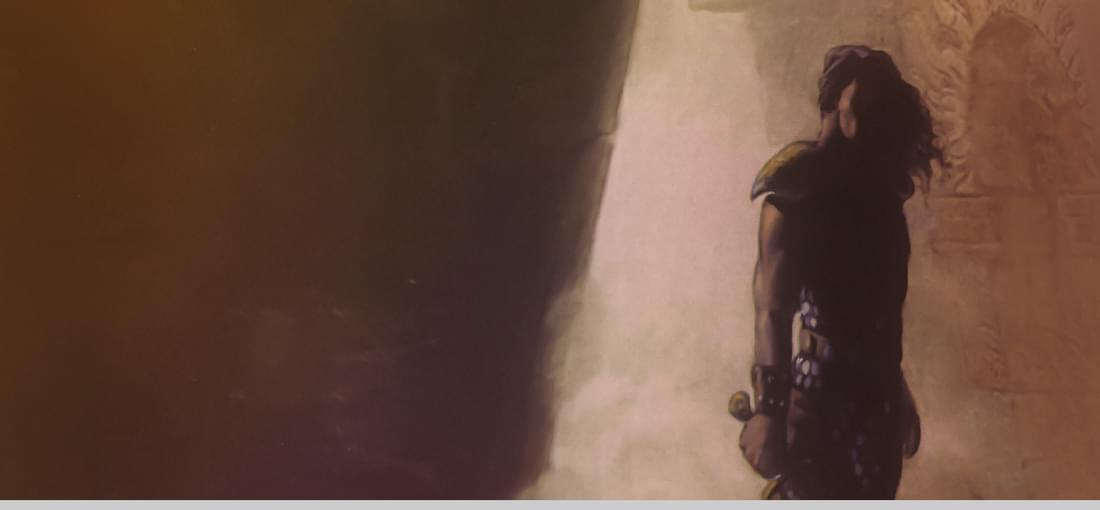
I’ve recently played Arx Fatalis for the first time and I must say – I absolutely loved it! Already from the intro I was intrigued. The setting of Arx Fatalis seems pretty original and interesting at first glance. The sun of Arx has died and disappeared from the skies, turning the world into an icy shell. All the sentient races of Arx had to retreat underground, into the old dwarven tunnels, and accomodate to the life with tonnes of rock above their heads and darkness everywhere around. The game indeed takes place entirely underground, and you’d think it would be boring from a design perspective. But I’m happy to say I think the developers made a good job of making each level of the dungeon distinct. While the setting is pretty great, the story is not particuarly mindblowing. It’s not to say that it’s bad – it’s just „okay” I would say. But what was so great about Arx Fatalis and what I loved about it was just the multitude of interactive elements and little immersive mechanics. You can bake bread in Arx Fatalis, for example. You have to get flour and you have to get water. Then, you have to mix them in your inventory to make bread dough. Then, you have to light a fire. And lay the bread near the fire. And the dough rises. In real time! Arx Fatalis is full of those little things. If you drop cheese on the ground, mice will gather to eat it. There’s even a very cool interaction with the stock market, where you can buy shares in a business and their price actually reflects what happens in the game. I personally loved it – I loved the little interactions, the exploration, the setting. I’m one of those people who can derive real joy from really small details, and Arx Fatalis seemed to be chokefull of those. I thoroughly enjoyed my time with it. If you want to see how I did playing the game for the first time, you can see it on my channel here: https://www.youtube.com/watch?v=hW8vhDY0NQo&list=PLp4TpsJ7HUWUuMgPUrYxec8hKq0VqmeJa
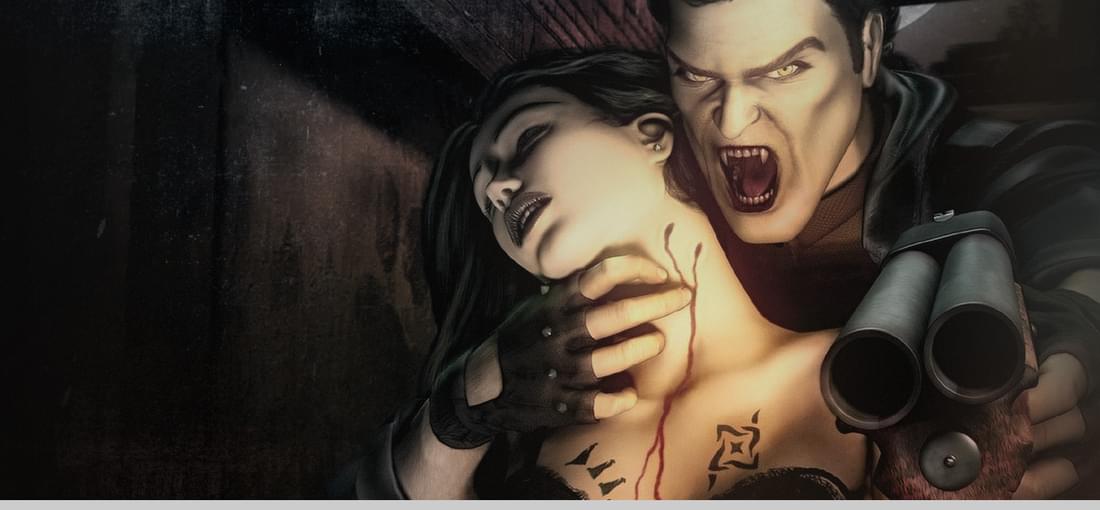
Let me start with the things I liked, or at least that I thought were okay. The music was pretty okay. I actually still have some themes in mind after finishing the game. For example, I find Anezka’s theme to be pretty beautiful. I kinda enjoyed Christoff as a protagonist. The story, while not particularly groundbreaking was okay. I enjoyed the themes of damnation, Christof’s ruminations on the fate of his soul. There were also interesting themes of sacrificing innocence to save something else, or of commiting sin to stop someone else from commiting a sin. But the biggest problem I had with Redemption is that it was, easily, like 80% combat. Non-stop combat, through multiple level „dungeons”. With nothing to do in them, no books to read, no magical experiments to inspect, no puzzles. Just dozens upon dozens of enemies. I would say that if you’re making a crpg and create multiple-level dungeons with nothing but dozens of enemies in them, you’re doing something wrong. There’s zero exploration in the game – each location must be visited during the main plot, and in precise order to boot. There are also no additional sidequests or activities. Overall, though, the game was just dreadfully boring to me on account of being filled with endless combat. It is in my opinion exemplified by the Tremere Chantry. Here you have this headquarters of a magical clan of vampires, descendent from human mages. There’s so much potential for lore, for magic puzzles, for blood-curdling experiments, for tomes of lore and amazement. And there is nothing. Literally, you just go through 4 levels of the „dungeon” fighting all the time. I was majorly disappointed by Redemption, but if you want to see how I came to that conclusion, you can see me playing it blind on my channel here: https://www.youtube.com/watch?v=TaYseRpjAjA&list=PLp4TpsJ7HUWXFDI46P0Jr0C34g1qhXDma&index=1
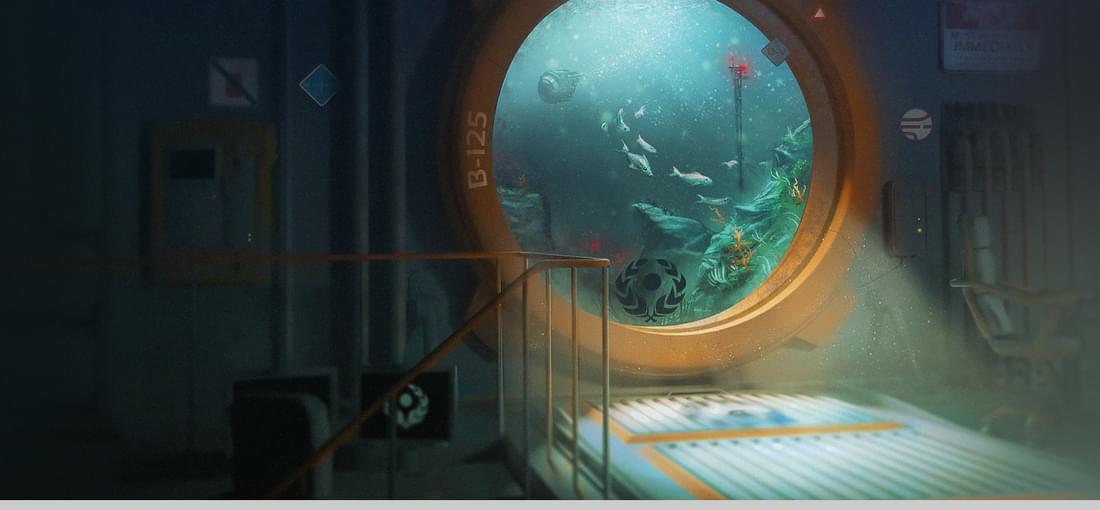
As far as the „genre” of walking sims is concerned, SOMA is definitely top tier. I was rather invested for most of it, and it was wonderfully dark and depressing – on that last point much more than I could ever anticipate. SOMA’s graphics are nothing extraordinary on the technical level, but I did enjoy the art design itself. There are some wonderfully creepy enemy designs, although it’s a pity that you seldom get a good look due to the mechanics of the game. But overall, there are certain locations and designs that left a lasting impression on me (*cough* the „moss” *cough*). The ambience audio design is also decent, and the voiceacting is generally okay. In the gameplay department SOMA is pretty much a walking sim. There’s not much to do besides exploration, listening to dialogue and making a few crucial choices. It’s not a disadvantage for me per se – I don’t have anything against „walking sims” if they are engaging, and SOMA happens to be. But I guess where the strength of SOMA is supposed to lie (and does indeed lie, in my opinion) is the story and choices. The choices that SOMA presents you with are some of the most dark, depressing and cruel decisions that a game made me consider, and with each of them I asked myself questions about life, death, the right we have to either of those, the quality of life that is acceptable (or not) and whether we have a right to make ceratin choices for other people, and if so – under what circumstances exactly, and where does the line lie. The story was… a bit less complex and „deep” ™ than the gossip made me believe. I was expecting a 5d existential chess philosophical maze type of story, and I got „just” something that was pretty good. If you would like to see a player exploring it in 2021 for the first time blind, you can see a playthrough on my channel here: https://www.youtube.com/watch?v=Qt_QwsU3de0&list=PLp4TpsJ7HUWV_l4C-p9RIkuif1uVEAEfy
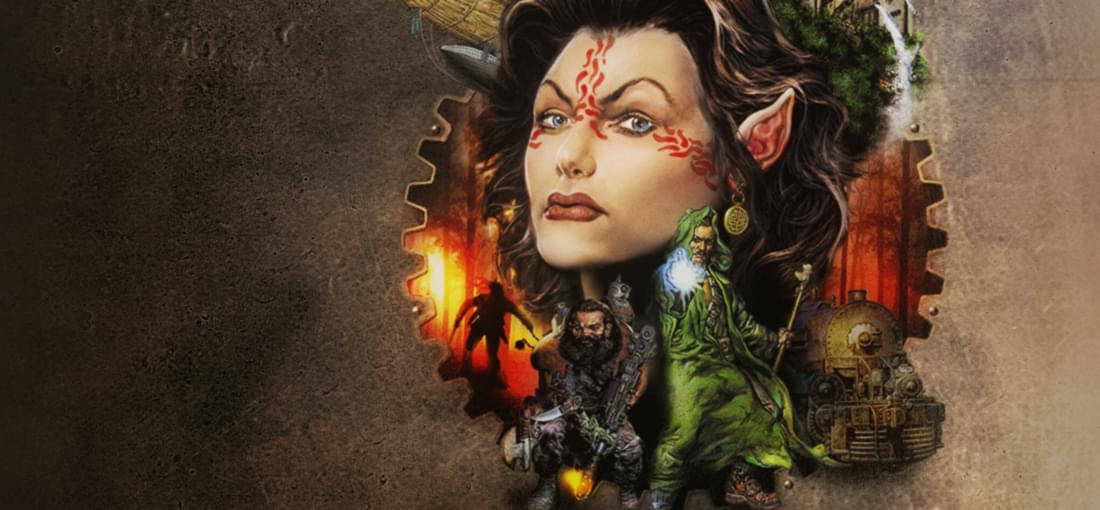
The first thing that immediately grabbed me in Arcanum was the SETTING itself. It seems pretty unique, because it’s a pretty standard fantasy world with the classic fantasy races – bearded, technologically minded dwarves, magical and nature-aligned elves, industrious gnomes and so on, but there’s a twist that builds upon this classic fantasy depiction, and the twist is that the world is currently undergoing an industrial revolution. Next point I loved about the game is the MUSIC. Not all pieces are remarkable, but the ones that are really, really stayed with me. It’s certainly a good decision by the game to put one of the most beautiful tracks right in the main menu. How about the STORY, then? I would lie if I said I thought it was boundlessly brilliant or anything like that, but for me it was definitely engaging and mostly competently done, interesting enough to keep me going through the 65 hours I spent in the game, and with a couple of highligts I’ll probably remember for a really long time. Finally, the GAMEPLAY. I didn’t find it’s gameplay to be anything overly fascinating, but that’s maybe because I never really entirely grasped it. Arcanum’s really one of those games that expect you actually READ the manual. And I never did. But one thing that really brings Arcanum down in my opinion is the significant amount of trash mobs that you have to kill and their sheer repetitiveness. There’s a LOT of travelling and only like 3 random encounters. I’m not even kidding. What do you think about my opinion? How do you remember Arcanum? If you’d be interested in checking out as someone who really values exploration, story and immersion goes through the game for the first time, you may check a BLIND playthrough on my youtube channel, here: https://www.youtube.com/watch?v=vWCNGo5_19I&list=PLp4TpsJ7HUWW431baJHkNmF2KfucvTXB2
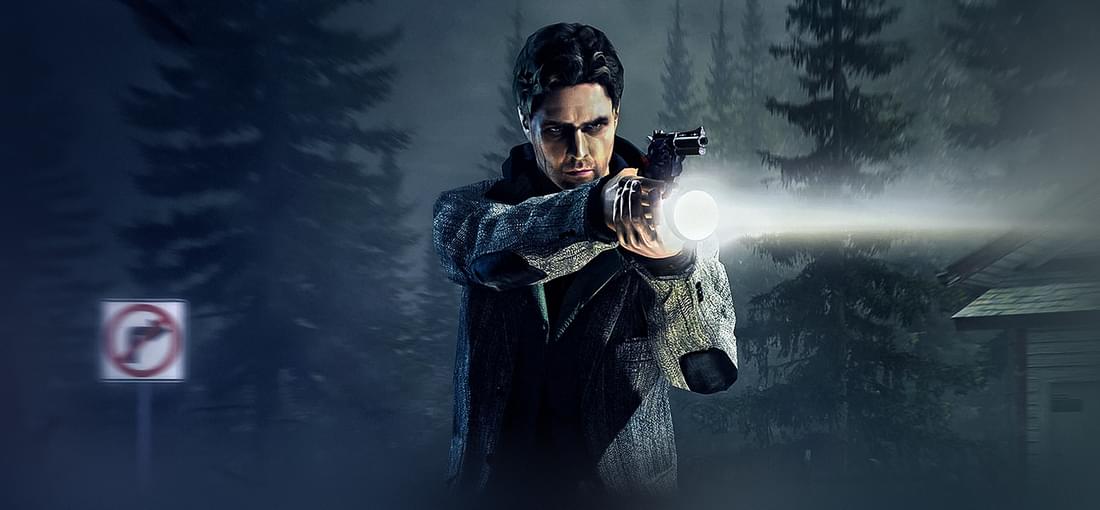
So, first, GAMEPLAY: I’m sorry to say that I think the base gameplay loop is boring as hell. The base mechanic is as such: you shine your light at the enemies for long enough to pierce the supernatural darkness that covers them, and then shoot them. Done. Repeat a couple hundred times through the game. The main gimmick with the darkness wears off pretty quickly, because here’s the thing: there are three types of enemies, total. Regular Taken, strong Taken and fast Taken. There are also Taken birds, but I don’t really count them as you encounter them only a couple of times through the game, and you only have to shine your light at them to destroy them quickly. The repetative gameplay is exacerbated by the repetative LEVEL DESIGN, too. It’s not an overstatement to say that about half of Alan Wake takes place in the samey-looking dark spoopy forests and logging camps. They are cool and atmospheric the first couple of times, what with the foggy foreboding trees, but in the end they all blend together and there’s nothing to do in them anyway, apart from just fighting the same repetative enemies. So that leaves the story. It wasn’t horrible or anything, but it was okay. It kinda lacks memorable characters, too. Alan Wake himself is a boring protagonist and a bit of a douche, but not in a way that’s particularly fun. The only real highlight of the game is the soundtrack, it features a number of songs that not only sound nice, but also tie into the plot. My favourite is the Poet and the Muse, which re-tells backstory of important events and serves as plot clues all in ballad-like form: https://www.youtube.com/watch?v=GeSUvoY2oUk If you would would like to see someone trying to explore everything and experience the story for the first time, you can see a blind playthrough here: https://www.youtube.com/watch?v=Rh3yieVJjpM&list=PLp4TpsJ7HUWW3jmaWqeX2qNFTozXvLLwc
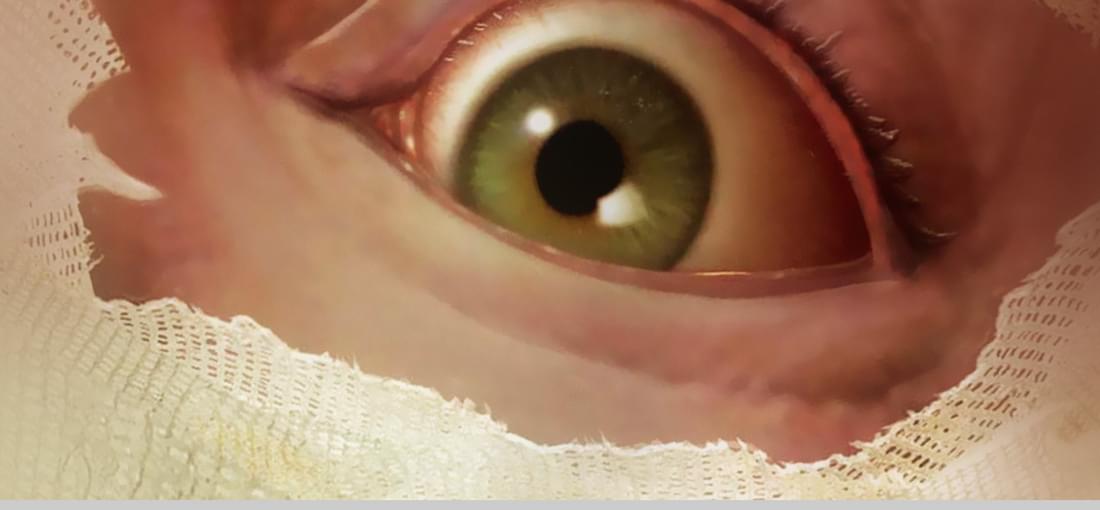
It was a great experience, unique and insane unlike any other I’ve had before. The game becomes crazier and crazier as it goes, and is even seemingly disjoninted and downight nonsensical at first, but but in the end they all fit together, relate to each other and to the greater story. Figuring out HOW exactly it makes sense was the greatest pleasure of Sanitarium for me. So overall, the story of Sanitarium, or maybe even more strictly speaking, the way the story is told and the unique enviroments you explore are the strongest points of the game for me and I would definitely recommend the game on that basis. The soundtrack is something worthy of praise as well – not every theme is memorable, but there are a couple that are definitely great. Now, Sanitarium is a point-and-click adventure, so there’s plenty of puzzles to go through. And I’m happy to announce that they were pretty well done and mostly enjoyable, even if sometimes hard for a newcomer to the genre like me. They overall avoided the “moon logic” problem – when you had all of the tools, solving the problem would maybe not be easy at first, but almost always made sense in the end. One of the biggest issues I had with the game was something the fans of the genre seem to call “pixel hunting”. There were more than a couple of instances where to proceed you had to interact with an item that was so miniscule, so seemingly insignificant and so devoid of any uniqueness that it was almost impossible to fish it out of the background. And that’s just not fun to me. If I managed to pique your interest, feel free to try the game for yourself, or if you don’t feel like it but would still like to experience the story and see how a person trying it blind was trying to piece it together as they went along, you can check the full playthrough on my channel here: https://www.youtube.com/watch?v=9QM112ONK_0&list=PLp4TpsJ7HUWVvbaHwHi9MNEzeQNJsYWpE
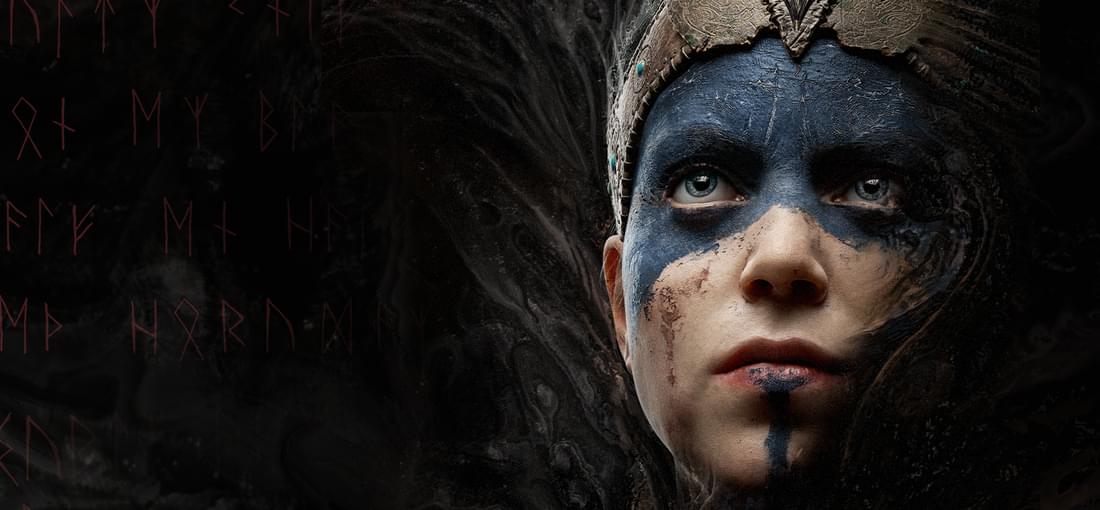
I liked it, and I think it did some things really well, but overall I feel like more could have been done with the concept, and some of the elements didn’t really work that well. Let me explain. The crux of the story is that Senua suffers from what the characters in-universe refer to as „the Curse”, being pursued and hounded by „the Darkness”. Senua hears voices – and you hear them too. In fact, I think it’s kind of implied that you, the player, ARE one of the voices in her head. And the voices themselves were mostly done really well – they really played up the „directionality” of them – they really sounded like coming from numerous directions, always chattering in the background, whispering, bickering with each other. The game was rarely completely quiet, and the cacophony of the voices was pretty unsettling. There were a couple of moments I found to be really poignant, touching and really, really sad, though. When you really look at it, the combat comprised a surprisingly substantial portion of the game – and I myself wouldn’t really mind if the game skipped it altogether – it was really mediocre and kinda boring after a longer while. I really enjoyed the puzzles with the runes. They were really simple in their design and instinctively easy to understand, but were pretty creative in how they worked, requiring you to look at the enviroment a little bit differently, from diverse angles. I loved the graphicl. I think the game looked downright gorgeous at times, and I often stopped to admire the visuals. The character models and animation were something else as well – I loved how expressive Senua’s face was. If you want to see how I experienced Senua blind for the first time and formed my predictions about the plot/talked about my feelings regarding what was shown, you can do so on my youtube channel here: https://www.youtube.com/watch?v=IhnVgwcN9C0&list=PLp4TpsJ7HUWUbV3J_6pDCmNyh-wMMAcik
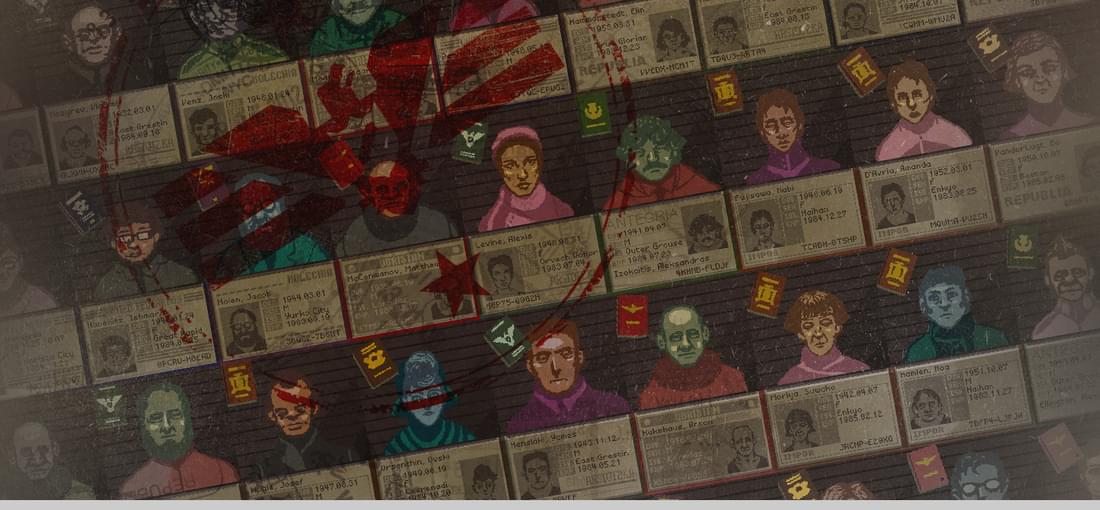
I really LIKED „Papers, please”, and that’s despite the fact that it really wasn’t the game for me in terms of gameplay – I was REALLY BAD at it, recieving over 80 citations during the game, and two „awards for presence” xD. But the thing is, I treated „Papers, please” more like an experiance than a game, really. And as an experiance it really shone to me, from the first seconds. The gameplay, as I said, wasn’t something I’d probably like on it’s own – I found it rather frantic and rather chaotic, not to mention kinda repetative. But the thing is – it really FIT the „experiance” I mentioned. It’s SUPPOSED to be frantic and repetative. But what really elevated „Papers, please” in my eyes was the story. Or rather – the „small stories within”, as I would call them. Not the overarching plot of the dictatorial government and the secret Order fighting it, but the small details. Bending rules to reunite lovers – feeling regret and shame when my sloppiness and incompetence lead to terrorist attacks and death… And the questions it caused me to ask – should I trust the listings of supposed „criminals” put up by a dictatorship? Are they really violent criminals, or am I just detaining political prisoners? If I admit a foreign journalist to the country illegally, am I then to blame if he’s killed for supposedly being a spy? How culpable am I, as a simple „cog in the machine” for what happens because of me doing – or not doing – my job properly? I constantly weighed my desire for „heroism” lending a hand in fighting the dictatorial government versus the safety of my own family. But overall, when I ended „Papers, please” (arriving at a pretty decent ending, but only by a total longshot, spending ALL OF MY MONEY and leaving the game with 0$ in my pocket), I felt I’ve experianced something great. You can see how I did playing it blind on my channel, if you want: https://www.youtube.com/watch?v=cqoX1LnN1bc&list=PLp4TpsJ7HUWXtO9vwkTciArtFQJoMS-y-
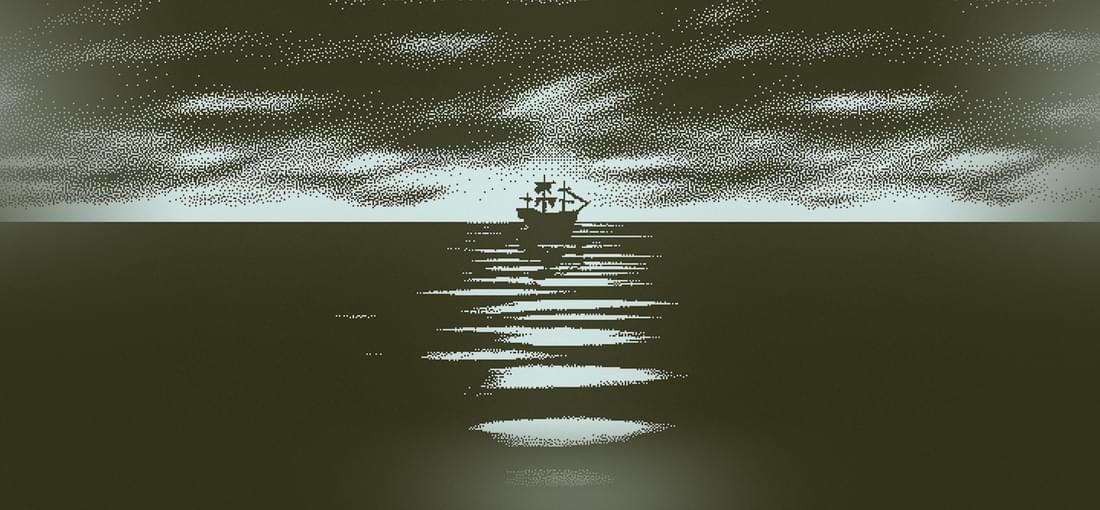
I must say… I was left just a little bit… disappointed by Obra Dinn in the end. I loved it in the beginning. The first impression was great – I was immediately in love with the graphical style which was really unique and beautiful in it’s simplicity. It seemed to really fit the “historical” setting of the game, because it almost looked like a moving pencil drawing made by someone of that era, perhaps the ship’s artist himself. And it’s simpleness didn’t detract from the player’s ability to notice details. The music was pretty atmospheric too – I didn’t love it as completely as I did the Arstotzka Theme, but then again – what can compete with the GREATEST COUNTRY? It was fitting and emphasied the various scenes pretty well And I really liked the deduction mechanic – validating the fates in sets of 3 left you enough of a wiggle room that you COULD make some educated guesses if you were stuck, or even completely cheese it as long as you were certain of at least some of the variables. And the thing is… I was really invested for most of it, even though I wasn’t really good. But in the end (the 100% fates correct ending) it didn’t really work that well for me. I was like “oh well, that is a story, for sure”. There was nothing in it and it’s conclusion that made me go “oh wow, that’s so great/deep/sad/interesting/whatever”. I was just like “oh ok, so that’s how it went”. It’s not that I didn’t like it – I did. I even loved most of it. But I loved the journey, not the conclusion. The conclusion felt… somewhat lackluster to me. I expected more and I don’t think I really got it. If you want to know how I did going into the game blind (and struggling more than a bit at the end there), you can see it here: https://www.youtube.com/watch?v=xG9IDqvQdmU&list=PLp4TpsJ7HUWUQS_x7n9qOJWOSM6sQQQWW